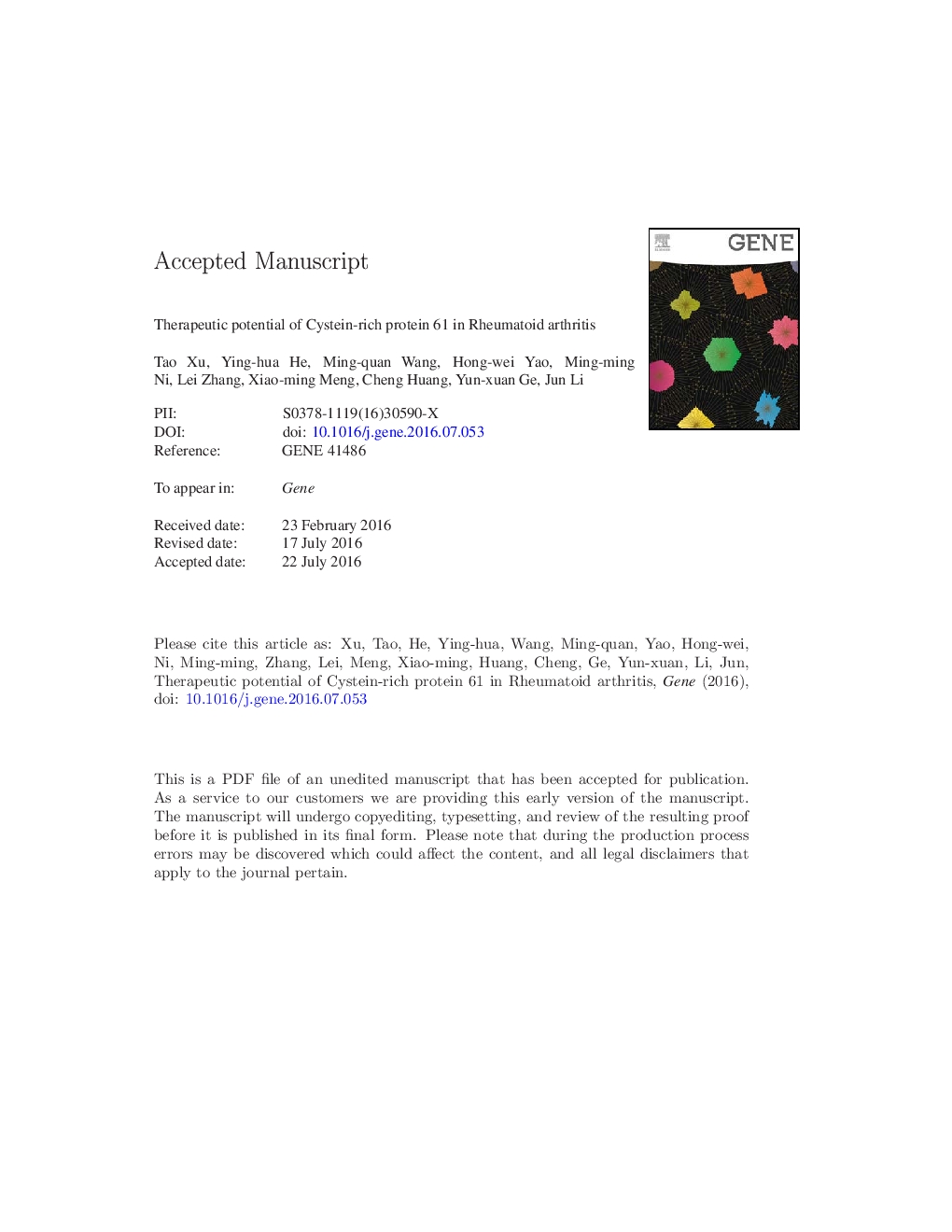| Article ID | Journal | Published Year | Pages | File Type |
|---|---|---|---|---|
| 5905074 | Gene | 2016 | 33 Pages |
Abstract
Cysteine-rich protein 61 (Cyr61)/CCN1, a product of an immediate early gene, can directly accommodate cell adhesion and migratory processes whilst simultaneously regulating the production of other cytokines and chemokines through paracrine and autocrine feedback loops. This intricate functionality of Cyr61 indicate its important role in targeting components of the infectious or chronic inflammatory disease processes including rheumatoid arthritis (RA). Recent work has focused on the role of Cyr61 in RA. For example, Cyr61 induced proIL-1β production in FLS via the AKT-dependent NF-κB signaling pathway. Moreover, Cyr61-siRNA decreased the levels of matrix metalloproteinase (MMP)-3 and MMP-13, and induced apoptosis in RA-FLS cells. These results indicated that Cyr61 may represent a novel target for the treatment of RA. In this article we will introduce the molecular properties of Cyr61, discuss the function of Cyr61, and the therapeutic potential of modulating the Cyr61 in RA.
Keywords
ECMcysteine-rich protein 61TSP-1Cyr61IGFBPtrkAIL-17TGF-βcarboxyl terminalIEGLRPsGPCRTFsVWCCTGFCCNBMPsG-protein coupled receptorHSPGscollagen induced arthritisRheumatoid arthritisAktinterleukin-17Synovial tissueforkhead Box OCIAtumor growth factor betaTranscription factorsVascular endothelial growth factorVascular Endothelial Growth Factor (VEGF)Connective tissue growth factorFoxOExtracellular matrixbone morphogenetic proteinsheparan sulfate proteoglycansimmediate early gene
Related Topics
Life Sciences
Biochemistry, Genetics and Molecular Biology
Genetics
Authors
Tao Xu, Ying-hua He, Ming-quan Wang, Hong-wei Yao, Ming-ming Ni, Lei Zhang, Xiao-ming Meng, Cheng Huang, Yun-xuan Ge, Jun Li,
